Radical change for Swiss agricultural policy goes to vote

Farmers should be providing the local population with food produced in a sustainable way: that’s the vision behind an initiative going before voters in September. Opponents fear it will result in excessive state intervention in the agricultural market and a pricing policy that could be detrimental to foreign trade.
The food sovereignty initiativeExternal link was launched by the trade union groups UniterreExternal link and L’autre syndicatExternal link from the French-speaking part of Switzerland in 2014 and is supported mainly by leftwing parties and an alliance of development aid and environmental groups.
If passed, it would radically change Swiss agricultural policy.
The initiative text is among the longest in the history of Swiss direct democracy. It outlines a ten-point programme for diversified and sustainable local agriculture, free of genetically modified organisms (GMOs), with an emphasis on job creation and good salary conditions.
It is based on the concept of food sovereignty developed by Via CampesinaExternal link, the international movement of small farmers of which Uniterre and L’autre syndicat are members.
It is a response to policy and structural changes in the agricultural sector that have occurred since the mid-1990s.
Its supporters are particularly critical of the decreasing number of farms, price volatility, the pressure of international competition on farmers, the power of large agro-food companies, and the repercussions for man and the environment.
Aims of the initiative
If the proposals were approved, a new article dedicated to food sovereignty would be added to the Swiss constitution.
The first two paragraphs set out the general objectives of the constitutional change: The government would be obliged to promote “local farming that is profitable and diversified, provides healthy food, and meets the social and ecological expectations of the population”. Food and animal feed would be primarily local and production would need to preserve natural resources.
The next seven paragraphs contain concrete measures for achieving these objectives.
The government would need to take steps to increase the number of people engaged in agriculture, preserve arable land and guarantee farmers the right to use, reproduce and exchange seeds. The agricultural use of GMOs would be banned.
The state would also need to guarantee the transparency of the internal market, encourage the establishment of fair prices, and strengthen regional processing and storage infrastructures. Particular attention would be given to the working conditions in the agriculture sector, notably through a streamlining of cantonal measures.
In order to achieve these objectives, the initiative also includes measures to ensure production would meet Swiss social and environmental standards by introducing taxes on imported products that do not comply or outright bans. The initiative also aims to remove export subsidies.
Lastly, the government would be responsible for raising awareness of the conditions for producing and processing local and imported foodstuffs.
Agriculture and food: these two themes seem to be of particular interest to the Swiss population.
On 24 September 2017, a large majority of voters approved a new constitutional article on food security.
One year later, Swiss citizens are being asked to decide on two initiatives, ‘For healthy and environmentally-friendly produced food products’, and ‘For food sovereignty – Agriculture concerns us all’, which aim to modify or complete the same constitutional article.
On November 25, citizens will also vote on the ‘For the dignity of agricultural livestock initiative’, which would give farmers financial support if they choose not to remove the horns from their cattle.
Two other proposals, on the use of pesticides (‘For clean water’ and ‘For a Switzerland without synthetic pesticides’) will also go to a vote. An initiative against intensive farming was launched last June.
Government opposed
The government called for on parliament to reject the initiative, saying the initiative throws into question the progress made in Swiss agricultural policy over the last 25 years.
It argues that the competitiveness and innovation of the agri-food industry are undermined, and the proposals limit Switzerland’s room to maneuver in foreign policy.
It argues that the goal of promoting diversified and sustainable local agriculture is already enshrined in the federal constitution, in particular, through the Article 104 on food security, approved by voters last year.
The government also has mechanisms for protecting farmland and agricultural prices, and promoting the processing, storage and marketing of agricultural products at the local level.
Export subsidies will necessarily be abolished by 2020 under World Trade Organization (WTO) accords, it notes.
A general ban on GMOs and other related technologies would put Switzerland’s innovation potential at risk. Meanwhile, harmonisation of working conditions at the national level would violate cantonal jurisdictions over labour contracts.
Lastly, the government believes that increasing import taxes represents a risk for the Swiss economy and jeopardises Switzerland’s international agreements.
Under the initiative, Switzerland would face a near impossible task of monitoring foreign compliance of Swiss social and environmental standards. Unilateral trade protection measures could have a very negative impact on Swiss trade relations, it argues.
Not much support in parliament
The initiative also failed to convince most parliamentarians. Debate on the issue was particularly lively in the House of Representatives, where almost all parliamentary groups expressed their sympathy for the initiative’s overall intentions.
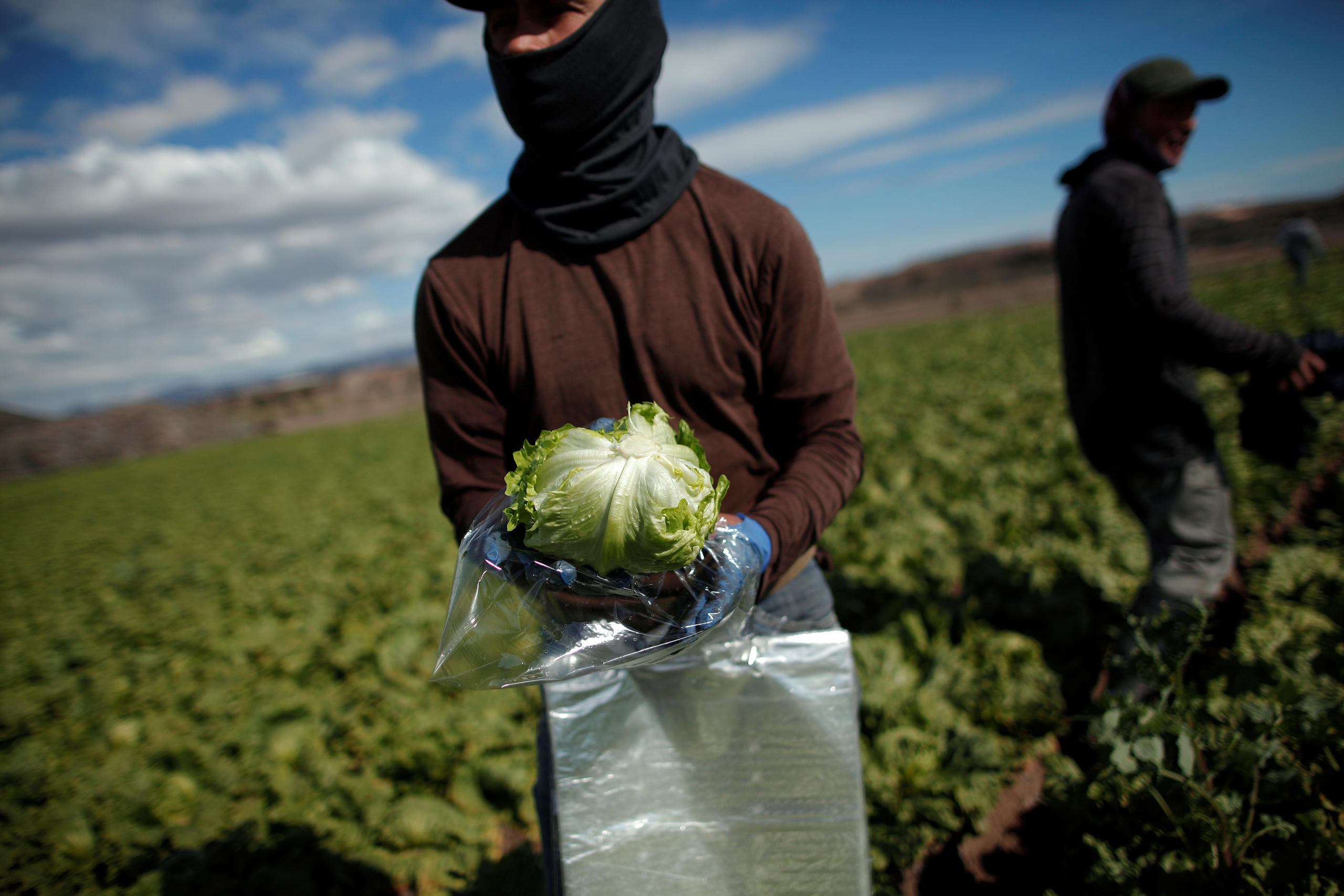
More
Initiative aims to tighten food checks and balances
In particular, the conservative right Swiss People’s Party and the centrist Christian Democrats took advantage of the debate to target the government’s agricultural policy.
As of 2022, the government plans to focus on free trade and reduce trade barriers. The presentation of a series of proposals last November prompted harsh opposition by farmers’ groups.
During the debates in parliament, only the Green Party felt that the initiative would help achieve the goal of creating diversified and sustainable agriculture.
“We need to send a strong signal of opposition to industrial agriculture, which is disconnected from the land and what the Swiss people have always wanted to avoid,” said Green parliamentarian Adèle Thorens Goumaz.
Like the government, other political parties said many of the initiative’s proposals already had a legal basis, and they considered other proposals excessive.
“The initiative is well-intentioned, very well-intentioned, but over-regulated,” said centre-right Conservative Democratic Party parliamentarian Duri Campell during a parliamentary debate.
“The initiative would result in a planned economy,” criticised Regine Sauter of the centre-right Radicals.
The left also criticised the fact that higher tariff protections would lead to rising food prices for consumers. A counter-proposal from some Green and Social Democratic parliamentarians which would do away with the most restrictive aspects of the initiative, was postponed.
In a final vote, the House of Representatives recommended rejecting initiative by 146 votes to 23, with 24 abstentions. The Greens voted in favor of the text, as well as around a third of the Social Democrats and two People’s Party members. More than a third of the Social Democrats abstained.
In its recommendations for the September 23 vote, the main farmers group also decided to abstain.
In the Senate, debate on the initiative was less lively. Only Green Senator Robert Cramer spoke in favour of the initiative, noting that every day two or three farms close, a reason why a new agricultural policy would be useful. The Senate recommended rejecting the initiative by 27 votes to one and four abstentions.
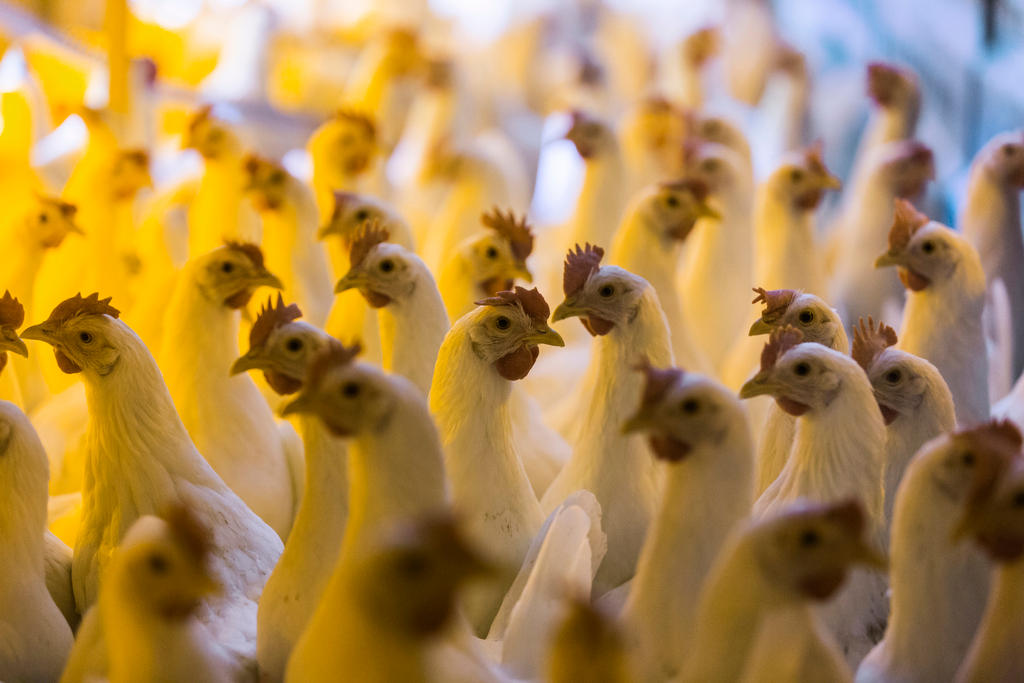
More
Ethical food initiatives enjoy broad early support
Adapted from French by Jessica Dacey/urs

In compliance with the JTI standards
More: SWI swissinfo.ch certified by the Journalism Trust Initiative









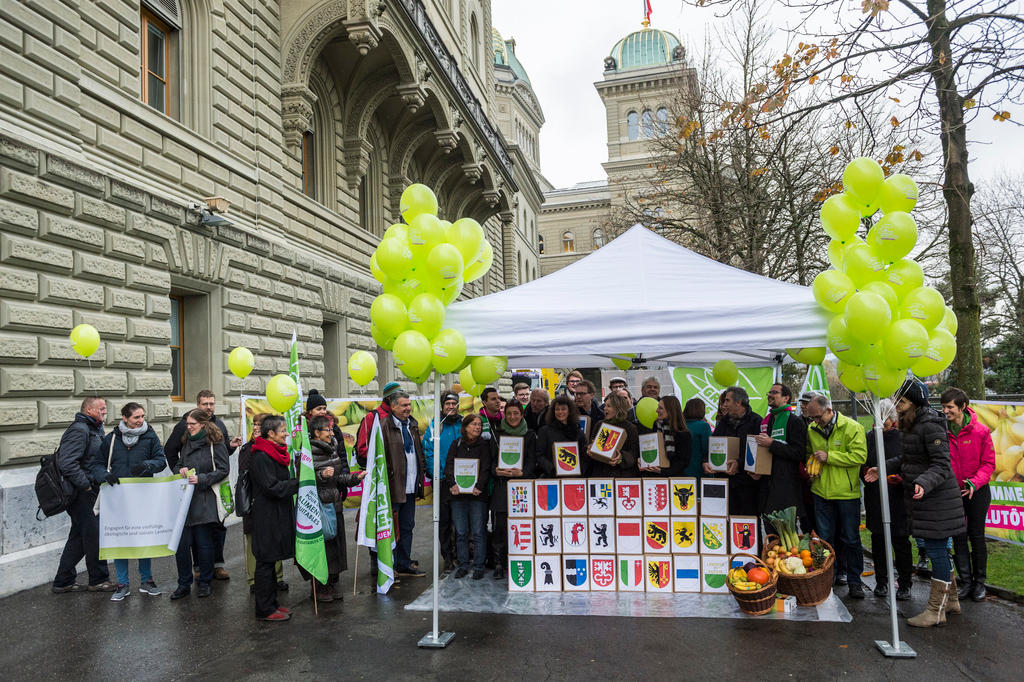

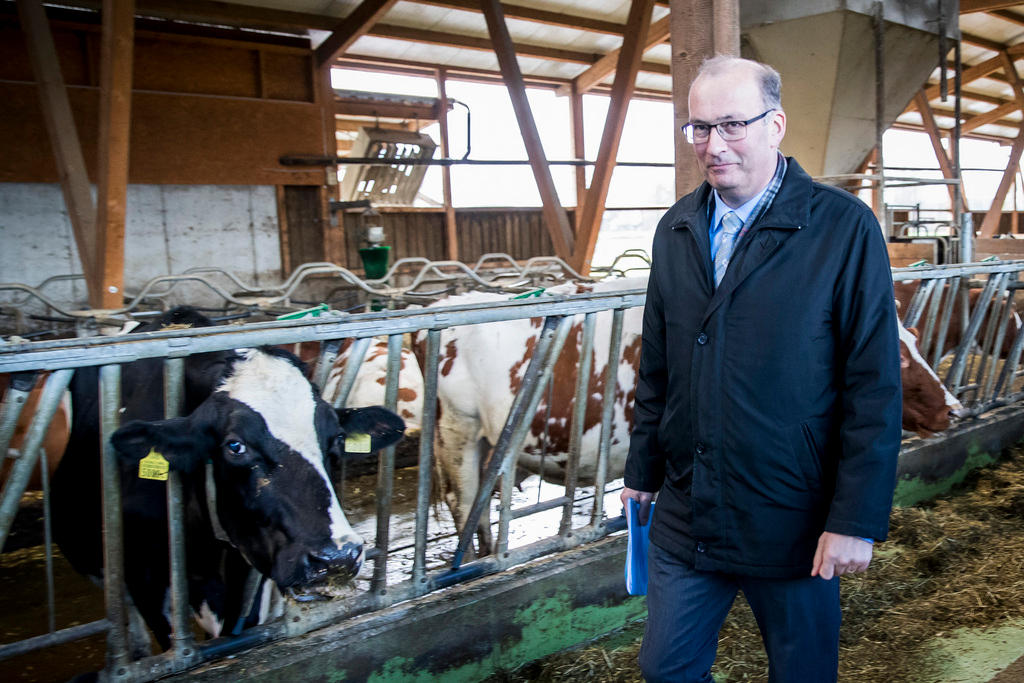
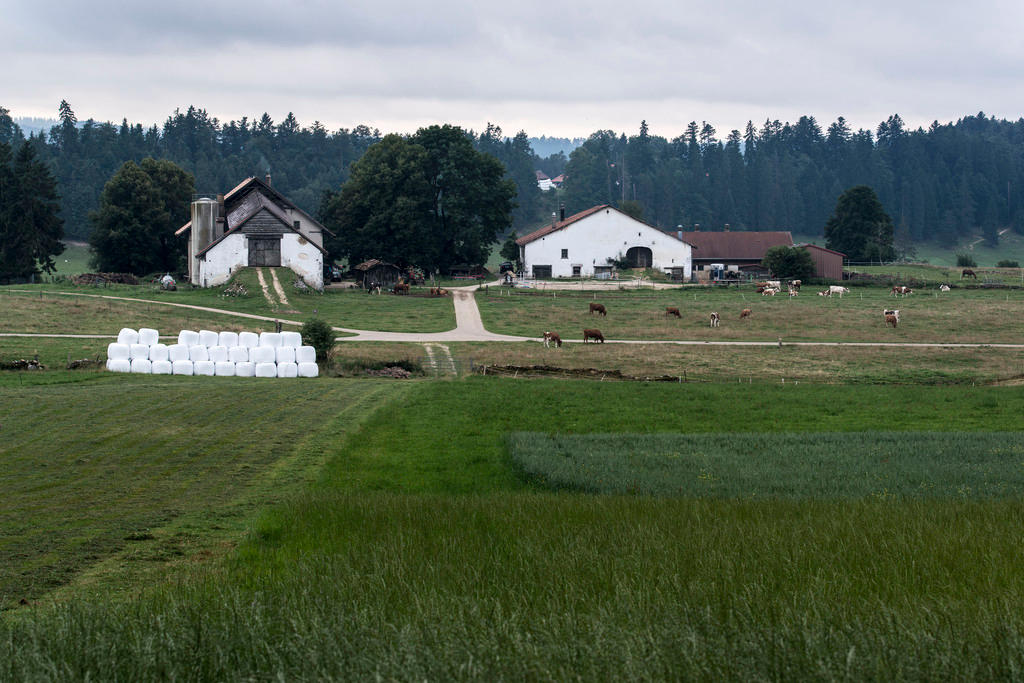

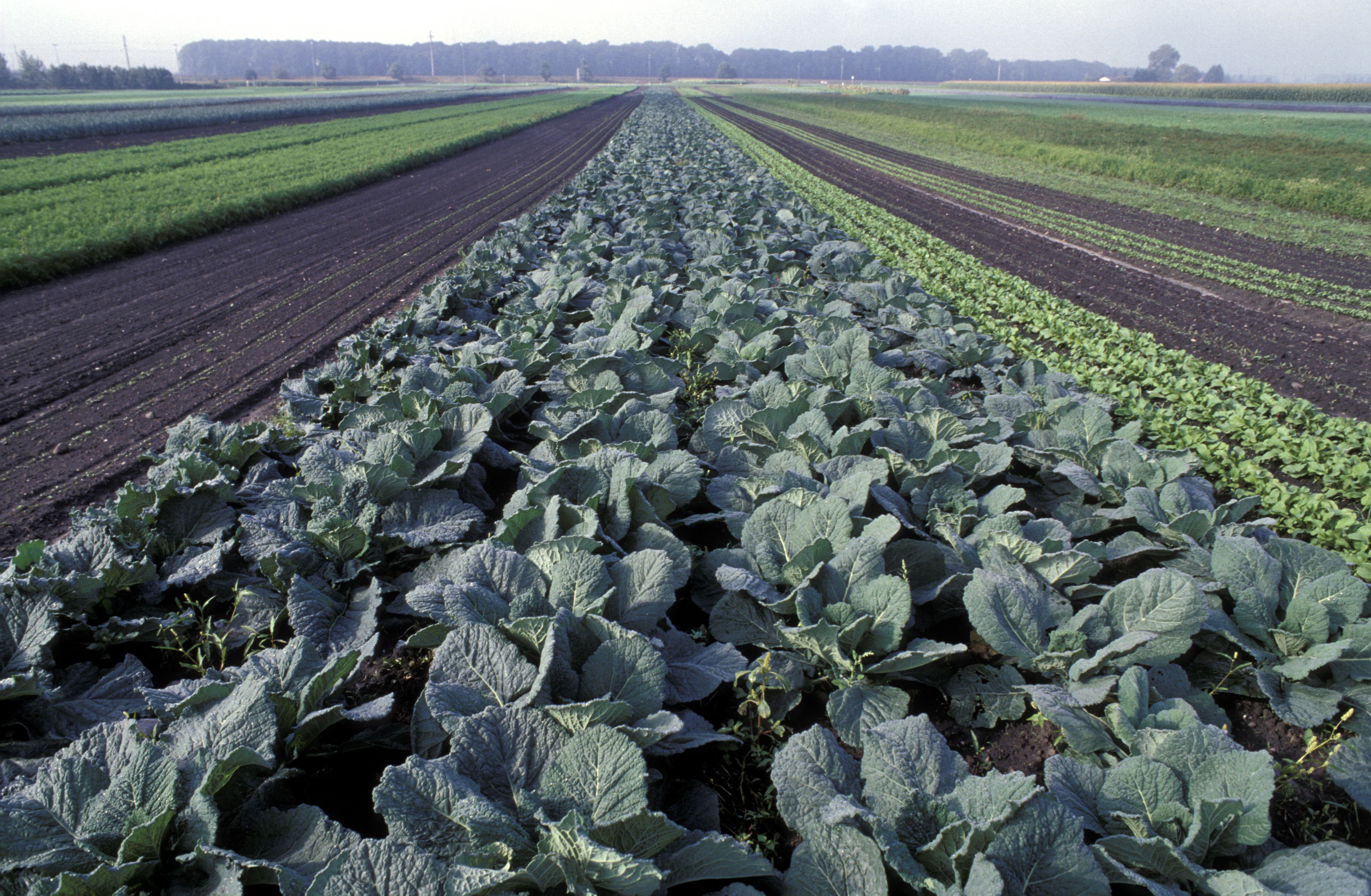



You can find an overview of ongoing debates with our journalists here . Please join us!
If you want to start a conversation about a topic raised in this article or want to report factual errors, email us at english@swissinfo.ch.